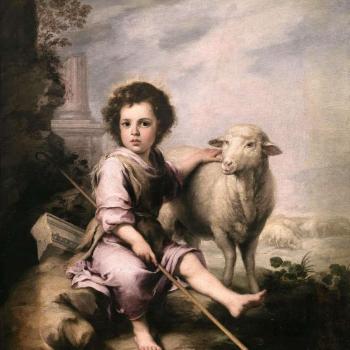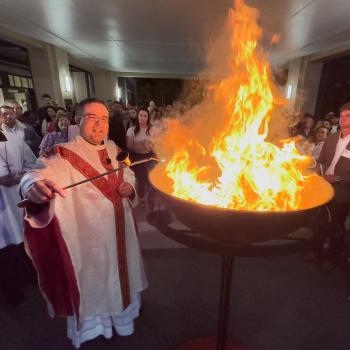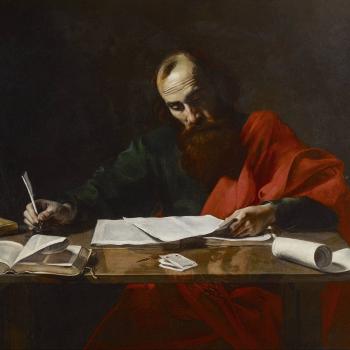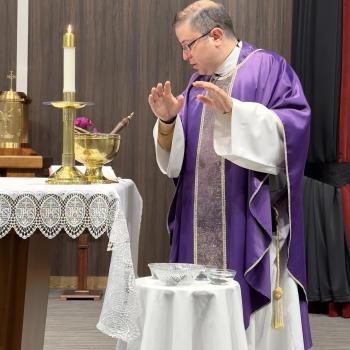A few years ago I asked this question to children at a grade school Mass right after reading this very same Gospel passage, the passage of the disciples on the road to Emmaus: “What does this Gospel passage remind you of?”
They looked at me puzzled. I’m sure most of them had zoned out during the Gospel since the passage is longer than usual, so I reviewed the passage: Jesus first read and explained Scripture to these very sad and discouraged men. Then they sat around a table once they arrived to Emmaus, and while sitting Jesus took bread, blessed it, broke it, and gave it to them. At this breaking of bread, this sharing of bread, the men recognized Jesus and were left overjoyed.
The school kids got it right away. The first hand went up, “Sounds like Jesus celebrating the Passover meal again.” The little girl was right, I was impressed, but it wasn’t the exact answer I was looking for. Another one said, “Sounds like the Last Supper.” Yes, I said, but again it wasn’t the answer I was looking for. Then another one said, “Sounds like the night before Jesus died.” Yes, I said, that was the Last Supper. Then another one, “Sounds like communion.”
The kids got it even though no one said the exact answer I was looking for. I said, “it sounds like Mass, it sounds like what we’re doing right now.” The actions of Jesus with the disciples on the road to Emmaus remind us of the Mass, the Eucharist. It follows the same structure.
Jesus used this structure on the road to Emmaus. He first cited and proclaimed passages from the Old Testament and then explained them to the two disciples. Later they sat at table and Jesus took bread, blessed it, broke it and gave it to them. It was at this breaking of the bread that the disciples recognized Jesus.
Our worship as Catholics is faithful to this very basic and ancient structure. We first hear readings from Scripture which are then explained during the homily (the Liturgy of the Word). Then we continue with the blessing of bread which is broken and given to those present (the Liturgy of the Eucharist).
In the same way the disciples on the road to Emmaus recognized Jesus in the breaking of the bread, today, we too recognize Jesus in the breaking of the bread.
Jesus truly manifests himself to us in the breaking of the bread as he did to the two disciples at Emmaus. Jesus is present, here, now, as we faithfully repeat the actions he instituted and asked us to do in remembrance of him. In the same way the two men recognized Jesus in the breaking of bread, we too recognize his true presence in the Eucharist, in the breaking of the bread.
This encounter with the risen Christ had a deep impact on both men, they said to each other, “Were not our hearts burning within us while he spoke to us on the way and opened the Scriptures to us?” The encounter makes the men get up and go proclaim what they had experienced. They traveled to Jerusalem to proclaim, “The Lord has truly been raised and has appeared to Simon! They recounted all that had happened.” The encounter with Jesus in the breaking of bread moved the disciples into action. They were transformed by the presence of Christ and they responded.
Every Sunday we have this very same encounter with Jesus. How does your encounter with Jesus Sunday after Sunday in the Eucharist move you or transform you? Where is he leading you? How is your life different because you receive the presence of the living God?
The presence of Jesus in the Eucharist moves us to deeper faith and prayer. It moves us to service and the proclamation of the Gospel. It moves us to be merciful and grateful. It moves us to put into action the gifts and talents we have received from God.
This weekend 30 children and young men and ladies received the Eucharist for the first time. Do you remember your first communion? The excitement and newness of receiving for the first time. Your heart was burning within you. As we receive today, renew that fire of God’s love as you recognize him in the breaking of the bread.
















